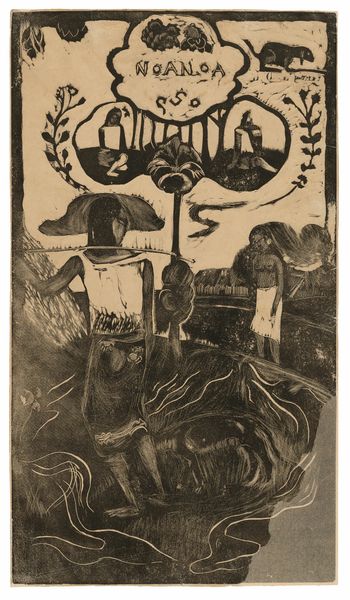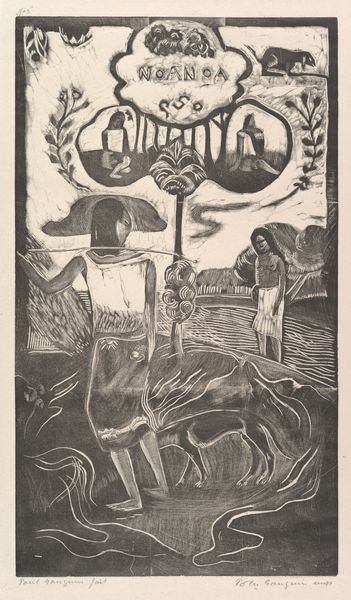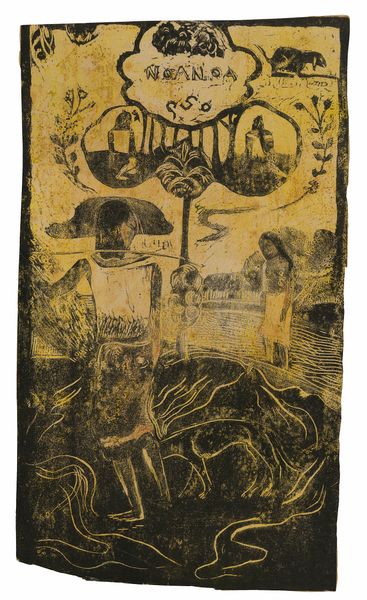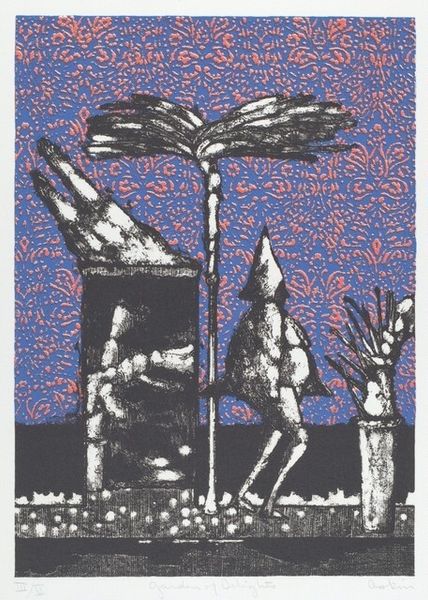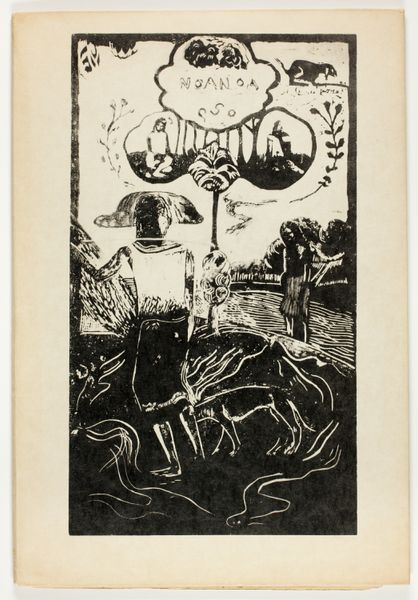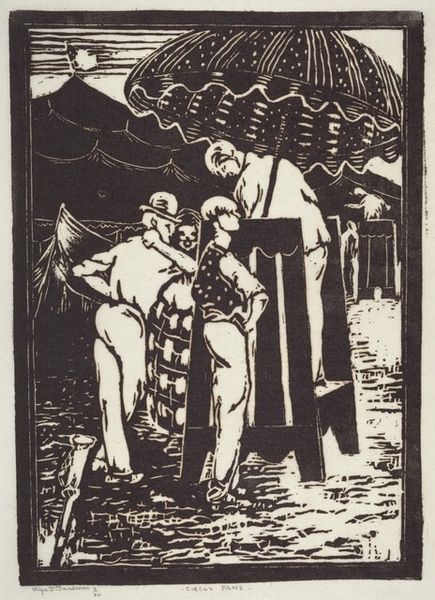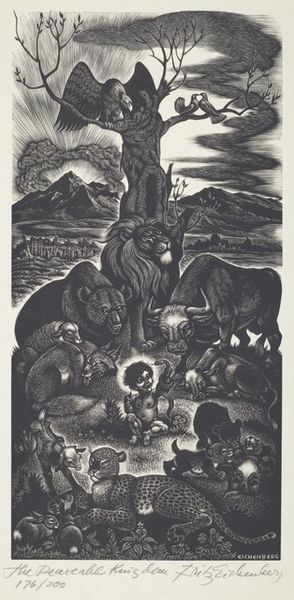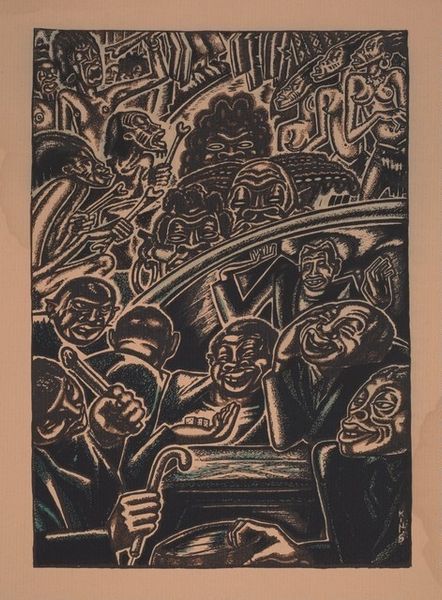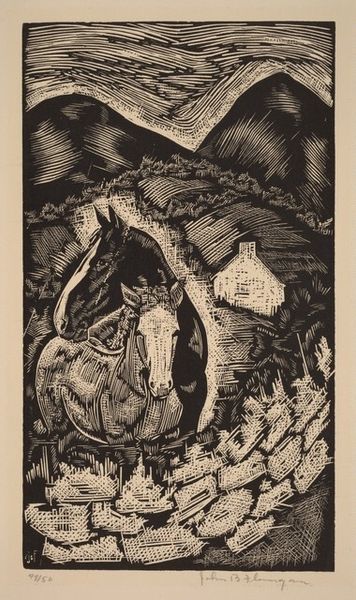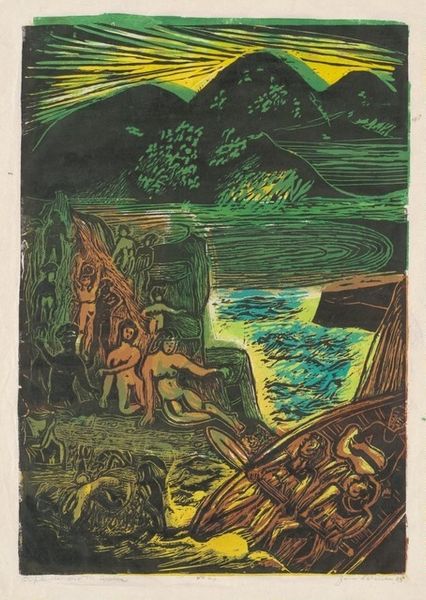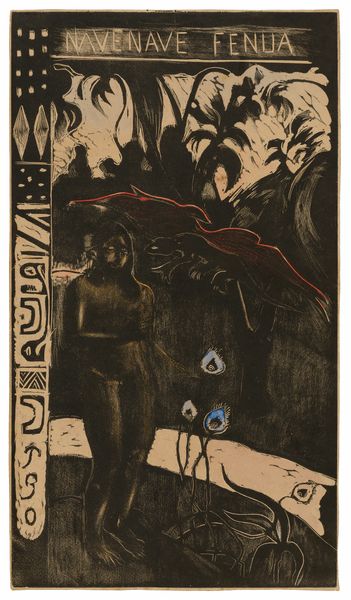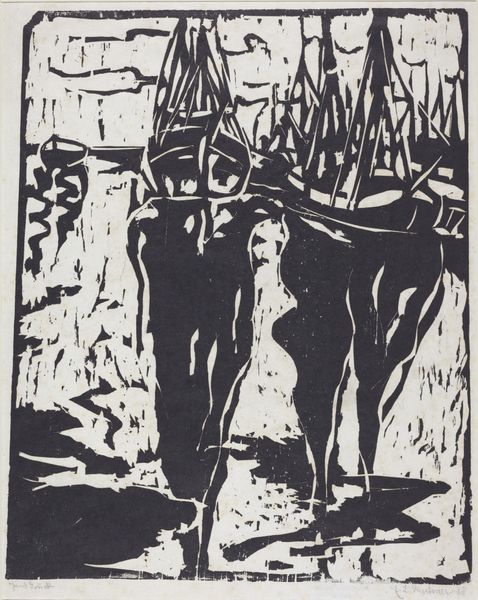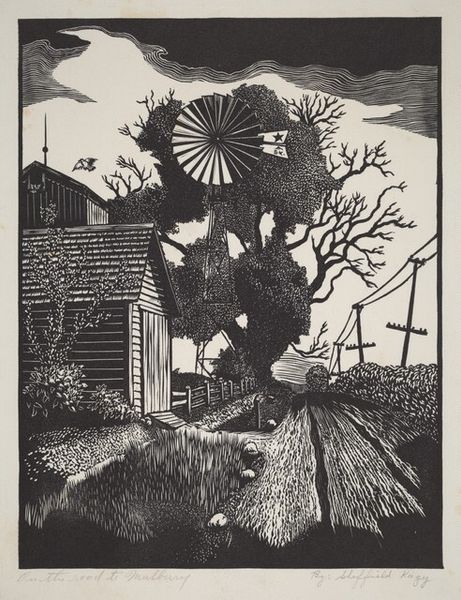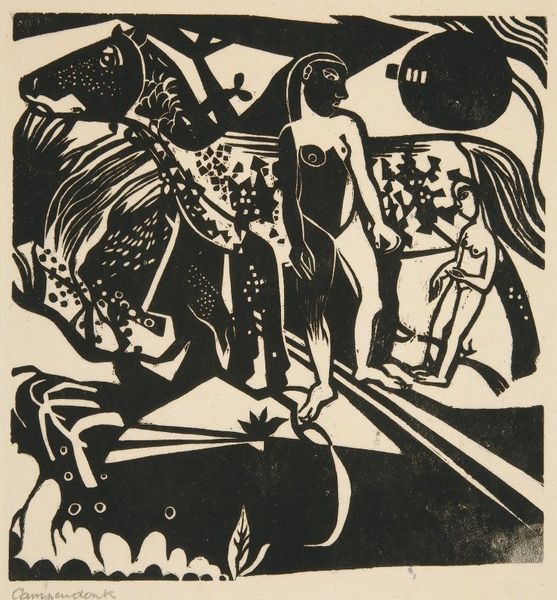
print, woodcut
#
narrative-art
# print
#
landscape
#
figuration
#
woodcut
#
symbolism
#
post-impressionism
Copyright: Public Domain: Artvee
Paul Gauguin made this woodcut, Noa Noa, as part of a series of prints and a book reflecting his experiences in Tahiti, an island in French Polynesia. The title translates to “fragrant” or “sweet smelling.” Gauguin sought an escape from what he perceived as the artificiality of European society. In Tahiti, he aimed to immerse himself in what he understood as a more authentic, "primitive" culture. We see how the legacy of colonialism shaped his encounters and artistic representations. The work raises critical questions about cultural appropriation, and the exoticization of non-Western cultures. Notice how Gauguin’s subjects are presented, and consider how his artistic vision might contrast with the lived experiences of Tahitian people. How do you feel about the way Gauguin explores themes of paradise, nature, and identity in his work?
Comments
No comments
Be the first to comment and join the conversation on the ultimate creative platform.
